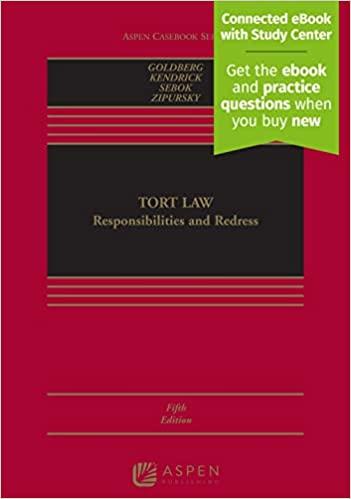Question
Reference: In August of 2021 Congressman Eric Swalwell of California, together with others, filed a civil suit in the United States District Court for the
Reference:
In August of 2021 Congressman Eric Swalwell of California, together with others, filed a civil suit in the United States District Court for the District of Columbia, against Donald J. Trump, et. al. alleging, among other things, that he violated 42 U.S.C. Sec. 1985 (1) a provision of the Ku Klux Lan Act of 1871.
"The statute, in short, proscribes conspiracies that, by means of force, intimidation, or threats, prevent federal officers from discharging their duties or accepting or holding office. A party injured by such a conspiracy can sue any coconspirator to recover damages. Id sec. 1985 (3)."
The underlying facts alleged in the complaint concern the facts leading up to and surrounding the events of January 6, 2021.
On February 18, 2022, the honorable Amit Mehta issued his opinion on the motion by Donald Trump to dismiss the complaint on the basis he was immune from liability, as the acts were done during the time, he was president of the United States. Judge Mehta denied the motion finding the former President was not immune. The case will therefore proceed.
Donald Trump has pled both his actual speech(s) and his "expressive conduct" are absolutely protected by the First Amendment. In his ruling, Judge Mehta found that the subject matter of both the speech(s) and the conduct were clearly matters of "public concern."
Question:
Should Donald Trump prevail or not prevail on his First Amendment defense?
Step by Step Solution
There are 3 Steps involved in it
Step: 1

Get Instant Access to Expert-Tailored Solutions
See step-by-step solutions with expert insights and AI powered tools for academic success
Step: 2

Step: 3

Ace Your Homework with AI
Get the answers you need in no time with our AI-driven, step-by-step assistance
Get Started


